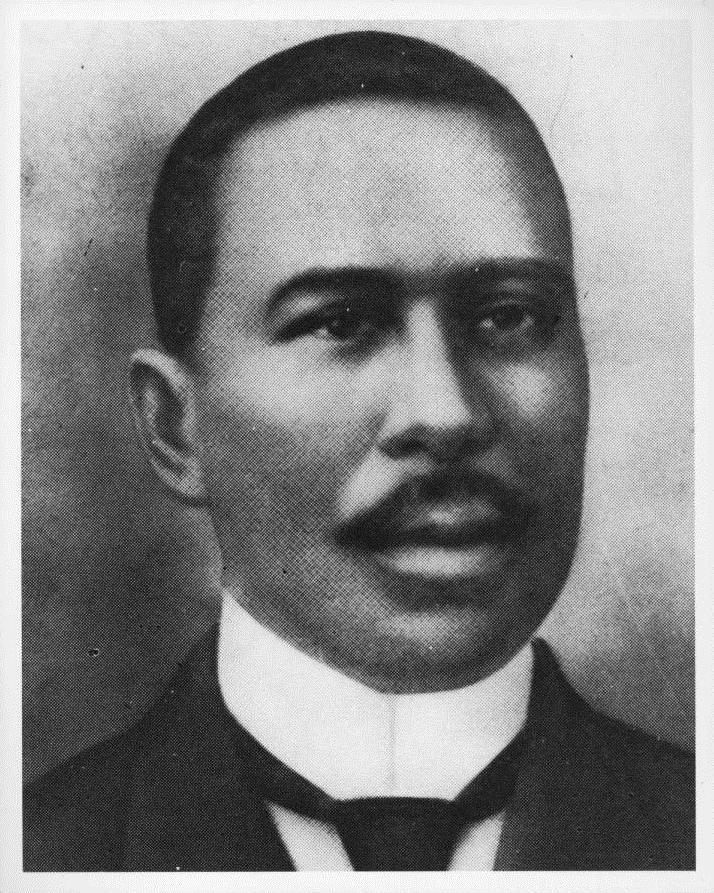Once upon a time in Black Entrepreneur History, there was a man named John J. Neimore who went on to become the founder/editor/publisher of the African American newspaper called The California Eagle and a young politician[3] and member of the Los Angeles Colored Club[4].
John J. Neimore was born in Washington County, Texas to Daniel and Susan Neimore on February 23, 1862.
It seems that he was a writer and entrepreneur from birth because as a teenage, in 1879 when he moved to California, he founded “The Owl” publication. Since then, each publication he founded never stuck until he ended up founding and launching The Eagle, later to be named The California Eagle. Later, John Neimore, at age 27, also fell in love and married an African American woman named Ida B. Lewis, age 18[2] in the city of Los Angeles.
John J. Neimore’s The California Eagle Newspaper
John J. Neimore’s The California Eagle newspaper was very important in the cultural and historical plight of African Americans in the state of California. It fought against racial discrimination by bringing attention to racism at all times.
Not only was John J. Neimore a publisher and editor, but he also was into politics, drafting what is known as the Dribble Bill into California state legislature[1].The Dribble Bill called for any person who discriminated against anyone based on their color, or race, to be penalized, no matter what public establishments in the state of California. Neimore’s Dribble Bill was for the protection of everyone against discrimination based on their skin color, African Americans and all those who were oppressed by it. The California Eagle shaped much of American history as a political voice for African Americans, and The Dribble Bill thrusted Neimore into politics as a leader for African Americans who relocated from the South in order to find freedom as they fought against white people who also relocated to California as well from the racist south, bringing their hardcore racist beliefs with them[1]. The goal of The Dribble Bill was to “erase what he knew would be a menace to democracy in the state, and would contribute to the same racial discrimination and friction that he and his people left behind in Texas.”[1] In 1915, the Dribble Bill won, and African Americans could not be discriminated against while riding public transportation, ending that Jim Crow policy.
Unfortunately, John Neimore’s health would deteriorate, and he would have to name a successor before his death on March 9, 1912, not able to see the successful end of The Dribble Bill.
The successor he named over the paper was Charlotta Amanda Bass, making her the one of the first African American females to own a news publication and later on to be the 1st African American woman nominated as VP on the Progressive ticket for the USA. The newspaper went on in her care to continue fighting for the plight of African Americans in the state and nation.
There was an African American town called Allensworth, California, founded by and African American man named Colonel Allen Allensworth, and it was The California Eagle that supported and pushed what was known as the Allensworth School Bill in the California State Legislature. It won, and the state of California appropriated funds to establish a high school in the African American town[1]. This fight for African Americans, despite the win for the high school, continued in the state against racial discrimination against African American high school students.
As far as housing discrimination, The California Eagle also led the way, coming against the Supreme Court upheld a policy of the Los Angeles Investment Company to only sell homes to white people, which was strictly written in the contract in the year 1919[1].
The Los Angeles Colored Club
John J. Neimore was a member of the Los Angeles Colored Club which had over 150 members[4], and it was a proud group of African American members who aligned with the Republican Party at that time. [See Robert Pelham Jr. for more insight into why African Americans began to leave the Republican Party]
Sources:
- California Eagle 26 Dec 1946, Thu · Page 1
- Los Angeles Evening Express 19 Feb 1890, Wed · Page 8
- Los Angeles Evening Express 21 Nov 1890, Fri · Page 4
- The Los Angeles Times 22 Aug 1890, Fri · Page 2
- Photo is Public Domain 1901 – Wikipedia





More Related Stories
African American Day – A Holiday Created by the Colored Auxiliary Society in 1800s
Joseph Edison Walker – Founder of Tri-State Bank and Universal Life Insurance Company
John “Don Juan” Knight – Formerly Enslaved to a Mahogany and Gold Mine Owning Millionaire of the 1800s